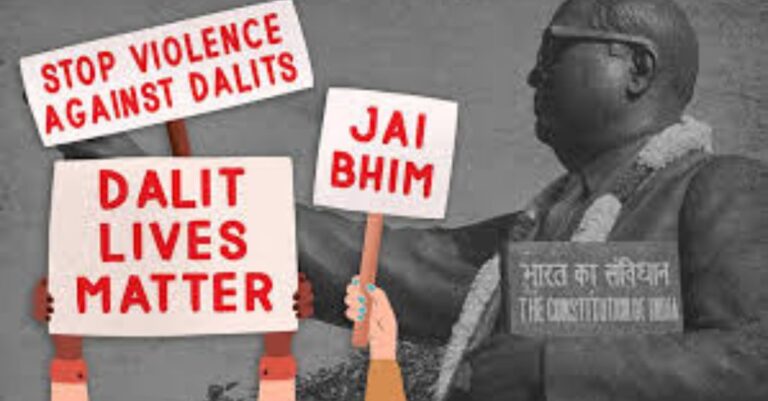Basanta Utsav is held each year in March on the Full moon day of Falgun. Spring is welcomed through music and dances. It literally means the ‘celebration of spring’.
The beautiful tradition of celebrating spring festival in Bengal was first started by Nobel Laureate Rabindranath Tagore, at Vishwabharati Shantiniketan, the University founded by him. Actually, Basanta Utsav is no different from Holi, except for the gracefulness with which it is celebrated. In Shantiniketan, Basanta Utsav is celebrated with immense fervor and zeal. Teachers and students greet each other with abeer in this festival day.
There is a procession of long musical dances in the morning, followed by Tagore’s music, rhymes and dance by students of different Bhavanas (Departments). On that day Boys and girls, dressed in yellow (basanti) color, welcome spring – the season of hope with pomp and splendor.
The website utsav.gov.in reiterates that Basanta Utsav literally means the celebration of spring, the beautiful tradition of celebrating the spring festival in Bengal. Shantiniketan is the abode of world poet Rabindranath Tagore. It is also about festivals celebrated in its own way, mingling with the love for nature. That is exactly what Tagore aspired for, education and development of human minds.
Another website pays tribute to Basanta Utsav. It allures us with its wording. ‘The atmosphere in Bolpur is vibrant, the air gets filled up with shades of red, blue, green, yellow, and pink. With the advancement of spring Shantiniketan gears up to add charm to the Basanta Utsav. There is a play of colors everywhere, women wear garlands of flowers mainly made of Palash and Krishnachura flowers’.
Let me select three Bangla songs which are very popular, and at the same time they capture the celebratory mood of Dol Utsav. The poet laureate himself wrote the song ‘Ore grihobaasi khol, dwaar khol, laaglo je dol’ in 1931. The song which is representative of Basanta Utsav runs thus,
‘Ore grihobaasi khol, dwaar khol, laaglo je dol.
Sthale jale banotale laaglo je dol.
Dwaar khol, dwaar khol.
Raanga haasi raashi raashi ashoke palaashe,
Raanga nesha meghe mesha probhato-aakashe,
Nobino paatay laage ranga hillol.
Dwaar khol, dwaar khol.
Benubano marmare dokhino baatase,
Projaapati dole ghaase ghaase.
Moumaachi phire jaachi phuler dokhina,
Paakhay baajay taar bhikharir bina,
Madhobibitane baayu gandhe bibhol.
Dwaar khol, dwaar khol’.
The meaning of the song: Hey people! Open your door, and come out of your four walls. The southern wind begins blowing after winter days, and the land, the sky, the meadows, the waterways—all are smiling. Nature is colourful and jubilant. Trees like shimul, ashok, and palash have been dyed crimson. New leaves are coming out in trees. There is a charm in the air. Butterflies and bees are moving around. Surroundings are wafted with the sweet smell of spring flowers. So, come out of your home and celebrate the season of joy.
Another Rabindrasangeet ‘Nil digante’, written 1922 by the poet paints the festive mood of the spring. It runs,
‘Nil digante oi phuler aagun laaglo,
Basonte sourabher shikha jaaglo.
Aakasher laage dhnaadha robir aalo oi ki bnaadha.
Bujhi dharar kaachhe aapnake se maaglo,
Sorshekhete phul hoye taai jaaglo.
Nil digante mor bedankhani laaglo,
Anek kaaler moner katha jaaglo.
Ele aamar haariye jaawa kon phaaguner paagol haawa.
Bujhi ei phaagune aapnake se maaglo,
Sorshekhete dheu hoye taai jaaglo’.
The meaning of the song: The sky is wide and blue. Trees are in bloom. Air is filled with fragrance. Words from the past pop up in the minds of the lovers. The March wayward air waves across the blooming mustard fields. Nature is calling me for sharing my joy and pain. Everywhere there is madness in the air.
Another song written in 2014 by noted singer and song-writer Anupam Roy also portrays the spring in its colour and spirit. Its focus is more on the footprint of love in the minds of the lovers during the spring. It runs thus,
‘Batashe bohiche prem noyone lagilo nesha
Kara je dakilo pichhe boshonto eshe geche
Modhur-o amrito baani bela gelo shohojei
Moromey uthhilo baaji boshonto eshe geche
Thaak tobo bhuboner dhuli makha chorone
Matha noto kore robo..
Boshonto eshe geche, boshonto eshe geche.
Gogoner novonile monero gopone
Baaje oi, baaje oi, baaje oi
Polashero nesha makhi cholechi dujone
Basonar rong-e mishi shamole swapone
Kuhu kuhu shona jay, kokiler kuhu taan..
Boshonto eshe geche, boshonto eshe geche.
Purnima raate oi chotachuti kore kara
Dokhina pobone dole boshonto eshe geche
Kemone gathibo mala kemone bajibe benu
Aabhege kapiche aakhi boshonto eshe geche
Thak tobo bhuboner dhuli makha chorone
Matha noto kore robo..
Boshonto eshe geche, boshonto eshe geche,
Boshonto eshe geche, boshonto eshe geche.
Ei bosonte onek jonmo aage
Tomay prothom dekhechilem ami
Hetechilem niruddesher paane
Shei bosonto ekhon vishon daami
Amar kache, tomar kache,
Amar kache, boshonto eshe geche.
Thak tobo bhuboner dhuli makha chorone
Matha noto kore robo…
Boshonto eshe geche, boshonto eshe geche
Boshonto eshe geche, boshonto eshe geche’.
The meaning of the song: Love is flowing in the air. Eyes are tipsy. Some are calling me from behind, and they announce that spring has already come. Palash is in crimson, and so is my garb. I am fully wake to the call of spring. The wide blue sky beats on my secret desire. The cuckoos are singing kuhu, kuhu. Let us bow to earth with dust-laden feet. Some are hurrying under the full moon. Southern wind is blowing. How do I make a wreath for my love? Who is going to play the reed? My eyes are swaying in emotion. We met once in spring. That was our first contact. We sauntered. We had no address then. That spring has again come, and it is too dear to you and me. Let us bow to earth with dust-laden feet.
In Bengal these three songs along with many others are very popular, specifically during Basanta Utsav. They may be said to be representative songs of the festival of colour. Teachers, students, professionals, politicians, homemakers, job-seekers, the under-employed, the unemployed and the unemployable, the street vendors, the shop owners, the shoe-makers take active part in it. School, college and office premises are smeared with abeer of ravishing colour. Street-boys make temporary stalls of abeer for a buck or two. Offices, educational institutes, bazaars remain closed. Holiday mood engulfs the highly cultural Bengal towns and villages not only for two days only, but for a week or so.
The waves of Basanta Utsav erase the stains of a labourer’s sweaty shirt, the stains of a migrant worker’s gamcha or the stains under the eyelids of an unemployed Bengali youth.
I hope songs of spring will also be written for the labourers who at five gather at street corners of my town, who smell the scented southern air, and wait till ten in the morning to be sold to some men with wealth. I hope songs of spring will also be sung for the migrant workers who at day and night huddle at Sealdah, Howrah, Malda, Cooch Behar, Asansol, Purulia railway station, to name only a few, to catch long-distance train. I hope songs of spring will also be in the air for those who, in search of livelihood, take the risk of being harassed, cowed, beaten or even lynched in foreign states.
Unfortunately, these immortal, romantic, Bengali spring songs and many similar to this genre do not reflect the reality of Bengal life. For example, almost 30 per cent of the population of Bengal is Bangla-speaking Muslims who hardly take part in Basanta Utsav. There is hardly any religiosity in this Basanta festival. It is one of the best cultural spaces where religion does not play a role. Spring welcome ceremony is for all Bengalis. But circumstances stand this way.
Moreover, these songs and many others of this genre are being willfully used by a section of sophisticated, self-interested Bengali cultural moguls for decades as a lullaby to the hungry, jobless, underemployed and unemployed millions of Bengalis. These songs do not encourage the Bengali youths to a renewed zeal for a better tomorrow. They sap their energy in excessive romanticism and make them inhabitants of a never-never land who will unfailingly fall in love and celebrate spring with the colour of their love-soaked hearts as if falling in love in Basanta is one of the primary concerns of Bengali youths.
For Bengali youths there is no guarantee of bread in spring in Bengal. The air is toxic. The leaves of the trees by roadside are layered with dust and soot. The pastures have been occupied. The slums dwellers have been disowned and their settlements-spaces have been sold to the promoters. Ponds and waterways have been filled in for making housing complex and amusing park for the invalids. The peasants, the seasonal hands, the daily wage-earners have no choice but to perennially seek alternative ways of living and livelihood. But in Basanta in Bengal there is a promise to win a queen or a king, if the cuckoos coo, and the wind blows from the south.
Refrences
- https://www.incredibleindia.org/content/incredibleindia/en/destinations/birbhum/basant-utsav.html
- https://utsav.gov.in/view-event/basanta-utsav
3. https://www.santiniketan.in/basanta-utsav - https://www.geetabitan.com/lyrics/O/ore-grihobasi-khol-daar-lyric.html
- https://songlyricsa2z.blogspot.com/2017/05/bawshonto-eshe-geche-chotushkone.html
- https://www.newsclick.in/migrant-workers-from-west-bengal-live-precarious-lives-economic-turmoil
- https://www.hindustantimes.com/india-news/with-no-jobs-in-bengal-migrant-workers-from-murshidabad-leave-home-again/story-3R9wJaFcoCPhLluPKqTAoI.html
(first published on Countercurrents)




